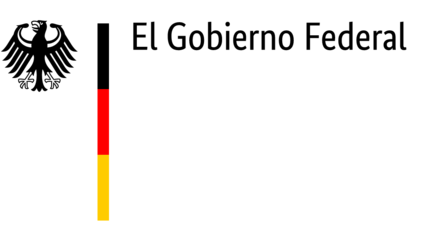Bioinformático
Senckenberg Gesellschaft für Naturforschung Número de referencia: 10001-1000168529-S- Idioma / Aplicación en:
- Jornada laboral: Tiempo parcial - por la tarde, Tiempo parcial - diurno, Tiempo completo
- Lugar de trabajo: Frankfurt am Main (Hesse)
- Tamaño de la empresa: Entre 51 y 500
- Tipo de contrato de trabajo: 36 mes
- En línea desde: 29 abr 2024
ERC-funded PhD and Postdoc Positions in Comparative Genomics
(full time / part-time options available)
The Hiller Lab at the LOEWE Center for Translational Biodiversity Genomics (TBG) in Frankfurt, Germany has two openings for a PhD student and/or a Postdoc to work on the BATPROTECT project to investigate the genomic basis of long healthspans, disease resistance, and viral tolerance in bats.
BATPROTECT
is a 6-year funded ERC synergy grant project that will use bats as natural models of healthy aging and disease tolerance to elucidate the molecular mechanisms behind bats’ exceptional longevity and resistance to viral and age-related diseases. BATPROTECT brings together a team of global leaders in bat biology and ageing (Emma Teeling, Dublin), bat immunology and virology (Linfa Wang, Singapore), evolution and genomics (Michael Hiller, Frankfurt), and ageing model organisms (Bjoern Schumacher, Cologne) that will jointly investigate aging and immune responses in bats from the wild and captive colonies, discover genes with evolutionary importance for longevity and disease resistance, and functionally validate longevity and immune regulators in stem and differentiated cells of bats and model organisms, with the ultimate goal to uncover new directions to improve human healthspan and disease outcome.
The Project
The overall goal is to uncover the genomic basis of exceptional healthspans and disease tolerance in bats, understand the evolution of these traits, and identify key molecular targets for functional validation. To this end, we will assemble ~150 new reference-quality bat genomes using HiFi and HiC sequencing to better cover the diversity of bats, generate comparative transcriptomic datasets, and analyze these data using our established methods repertoire (TOGA and others). Work includes phylogenomics, performing comparative screens to identify key adaptations in coding and non-coding (miRNA) genes as well as differences in gene expression patterns across the bat phylogeny, associating genomic changes with longevity and viral reservoir status traits, identifying novel bat genes, and investigating endogenized viral elements. The exact project will be defined based on the interests of the applicants.
The PhD student and postdoc will work closely with other members of the BATPROTECT team, the Hiller lab, and other Bat1K collaborators. We also offer exchanges with the other BATPROTECT labs as well as yearly retreats with all project members.
Your profile
• Master or PhD degree in bioinformatics/computational biology, genomics or a related area
• Solid programming skills in a Linux environment, experience with shell scripts and Unix tools
• Strong interest in comparative genomics, experience in comparative genomics is an advantage
• English in written and oral form
Our lab
The mission of our lab is to understand how nature's fascinating phenotypic diversity has evolved and how it is encoded in the genome. Work in the lab includes sequencing and assembly of reference-quality genomes, genome alignment and gene annotation, development and application of comparative genomic methods to discover differences in genes and gene expression, and the use of statistical approaches to link phenotypic to genomic changes.
Our lab is part of TBG (https://tbg.senckenberg.de/) and the Senckenberg Research Society (https://www.senckenberg.de/en/), and is based near the city center of Frankfurt am Main, Germany. TBG provides access to cutting-edge computational (large HPC clusters, genome browser) and lab infrastructure to sequence and analyze genomes. English is the working language in our lab.
Senckenberg and TBG provide
• Flexible working hours – opportunities for mobile working – leave of absence due to family reasons (certified by “auditberufundfamilie”) – parent-child office – annual special payment – company pension scheme – Senckenberg badge for free entry in museums in Frankfurt. – leave of 30 days/year
• Frankfurt is a vibrant and highly international city at the heart of Europe that combines a skyscraper skyline with ample parks and green areas. The Economist 2022 index ranked Frankfurt among the top 10 most livable cities worldwide.
Place of employment: Frankfurt am Main
Working hours: Full-time (40 hours/week) / part-time options are available
Type of contract: funding is available for 6 years
Postdoc: initially limited to 2 years
PhD: initially limited to 3 years
Start date: flexible, ideally summer of 2024
Salary and benefits: according to the collective agreement of the State of Hesse (TV-H), pay grade E13 (PostDoc 100%, PhD: 75%)
Senckenberg is committed to diversity. We benefit from the different expertise, perspectives and personalities of our staff and welcome every application from qualified candidates, irrespective of age, gender, ethnic or cultural origin, religion and ideology, sexual orientation and identity or disability. Women are particularly encouraged to apply, as they are underrepresented in the field of this position; in the case of equal qualifications and suitability they will be given preference. Applicants with disabilities (“Schwerbehinderung”) will be given preferential consideration in case of equal suitability. Senckenberg actively supports the compatibility of work and family and places great emphasis on an equal and inclusive work culture.
The Senckenberg Gesellschaft für Naturforschung is a member of the Leibniz Association and is based in Frankfurt am Main, Germany. LOEWE-TBG is a joint venture of Senckenberg with five partner institutes from the Federal State of Hesse, aiming to intensify biodiversity genomics in basic and applied research. We establish a new and taxonomically broad genome collection to study genomic and functional diversity across the tree of life and make genomic resources accessible for societal demand driven applied research.
How to apply
Please send us your application documents containing
• a CV with publication list and contact information for at least two references
• a summary of previous research experience (max 1 page)
• and copies of certificates, transcripts and grades
in electronic form (as a coherent PDF file) by June 07th 2024 to recruiting@senckenberg.de quoting the reference number #12-24005, or apply through the online application form on our homepage.
Senckenberg Gesellschaft für Naturforschung
Senckenberganlage 25
60325 Frankfurt a.M.
E-Mail: recruiting@senckenberg.de
For more information about the lab and the project, please contact Prof. Dr. Michael Hiller (michael.hiller@senckenberg.de) or visit the lab webpage https://tbg.senckenberg.de/hillerlab/. An overview about our publications is available here: https://tbg.senckenberg.de/hillerlab/publications/
For more information about the Senckenberg Gesellschaft für Naturforschung, please visit www.senckenberg.de
Nuestros anuncios de empleo se dirigen siempre a todas las personas profesionalmente capacitadas, independientemente de su edad, sexo, origen, orientación sexual, discapacidad, religión, ideología, etc. La selección de los candidatos está orientada exclusivamente a la cualificación.Se reservan los errores de información y ortografía.
![]() ¿Necesita una traducción del anuncio de empleo? Tradúzcalo a través de su navegador.
¿Necesita una traducción del anuncio de empleo? Tradúzcalo a través de su navegador.
Google Translate es un proveedor de terceros. Tenga en cuenta nuestra política de privacidad.




